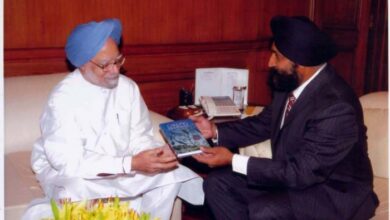Better childhood, better state growth
ECD mission hopes to improve socio-economic condition in the long run

“Children are living beings — more living than grown-up people who have built shells of habit around themselves,” wrote Rabindranath Tagore. Hence, it becomes essential to ensure the holistic growth of children and help them develop an analytical mind.
Keeping this in mind and the concern for maternal health, the Union government launched its Integrated Child Development Services (ICDS) scheme, the world’s largest community-based programme, in 1975 that targeted children up to six years of age as well as pregnant and lactating mothers. Though the scheme was first launched in one of the tribal blocks in Himachal Pradesh, it gradually spread to other parts of the country, including Meghalaya.
Forty-eight years on and after the success of the central scheme, the Meghalaya government is improvising and innovating to further strengthen the ICDS programme and improve the delivery system. Last year, the state launched the Early Childhood Development (ECD) programme in a mission mode to upgrade 2,000 existing Anganwadi centres and set up 600 new ones.
Funded by the Asian Development Bank, ECD has two focus areas — the development of children between 0-3 years and 3-6 years. The state also joined hands with Sesame Workshop India to design a learning and development module that would help in the holistic growth of children.
“The programme has been envisaged by the state, and along with Sesame, a module is being prepared. However, we have already made it clear to Sesame that the module will be tailor-made and local stakeholders will play a key role in co-creating it,” said Ronald Kynta, the chief operating officer for ECD. He added that the module will focus on the cognitive ability of children.
Talking about cognitive development, Kynta refers to a study, the brain wiring game, that was first implemented in Maharashtra under the UNICEF ECD project in 2018. This study focuses on how children behave under two conditions through a simple participatory activity. This not only helps in understanding child psychology but to adopt a method of learning to boost cognitive development.
A scientific approach
At least four state departments — Social Welfare, Education, Healthcare and C&RD — will be working in tandem to implement the programme that is broadly based on the High/Scope Perry Preschool study of the sixties. The study was a scientific experiment that identified short- and long-term effects of a “high-quality preschool education programme for young children living in poverty”.
Kynta informed that under this programme, not only the infrastructure at Anganwadi centres be developed but there would be significant changes in the nutrients provided to children at these centres and the learning methods.
“We will introduce eggs to the menu. The protein-rich meal will be provided twice a week. This is important as traditionally, children in rural villages do not consume too many eggs. Eggs are a source of various nutrients (protein, fat and vitamins, among others) and these will help children here develop a strong body and mind,” he added.
ECD is a first of its kind in Meghalaya and takes into account various studies and scientific approaches in formulating a suitable learning module for children in rural areas.
Upscaling Anganwadis
With the implementation of this mission, it becomes necessary to improve the existing Anganwadi centres as these will be the key units in training children and teaching them through games. The upscaled centres will have creches for working mothers and enough staff to maintain a healthy ratio of children to caregivers.
Currently, the Anganwadi centres are short-staffed and the state government is planning to collaborate with women’s self-help groups (SHGs) to improve the child-caregiver ratio.
“The state government has introduced schemes for the development of women-centric SHGs. Additionally, these SHG members are being made aware of their responsibilities not only as part of the groups but also as members of society and residents of their respective villages. This way, the SHG members can be part of the child development programme by volunteering at the Anganwadi centres,” said Kynta, adding that the government is hoping to roll out the basic infrastructural upscaling in at least 1,000 Anganwadi centres.
For this upscaling programme, the state government will converge the central NREGA programme with ECD. This will be besides the $50-million assistance from ADB.
The implementation of ECD becomes more pertinent, said Kynta, because of the exclusivity of the ICDS programme. According to him, when ICDS was introduced in the state, about 1,500 villages located in the remotest areas in the state were left out as they did not meet all the criteria laid down by the Centre for implementing the integrated programme.
“By involving the SHGs, which are our social capital at the grassroots level, we can eliminate this problem and introduce ECD even in these remote villages,” asserted Kynta.
ECD, if implemented in letter and spirit, will have a long-term impact on the state’s socio-economic structure by creating a healthy environment for the upbringing of children in the development stage. However, there should be a proper timeframe for the implementation and that has to be strictly followed for the mission’s success.
~ Team Sunday Monitor
Photo by Keira Burton on Pexels




